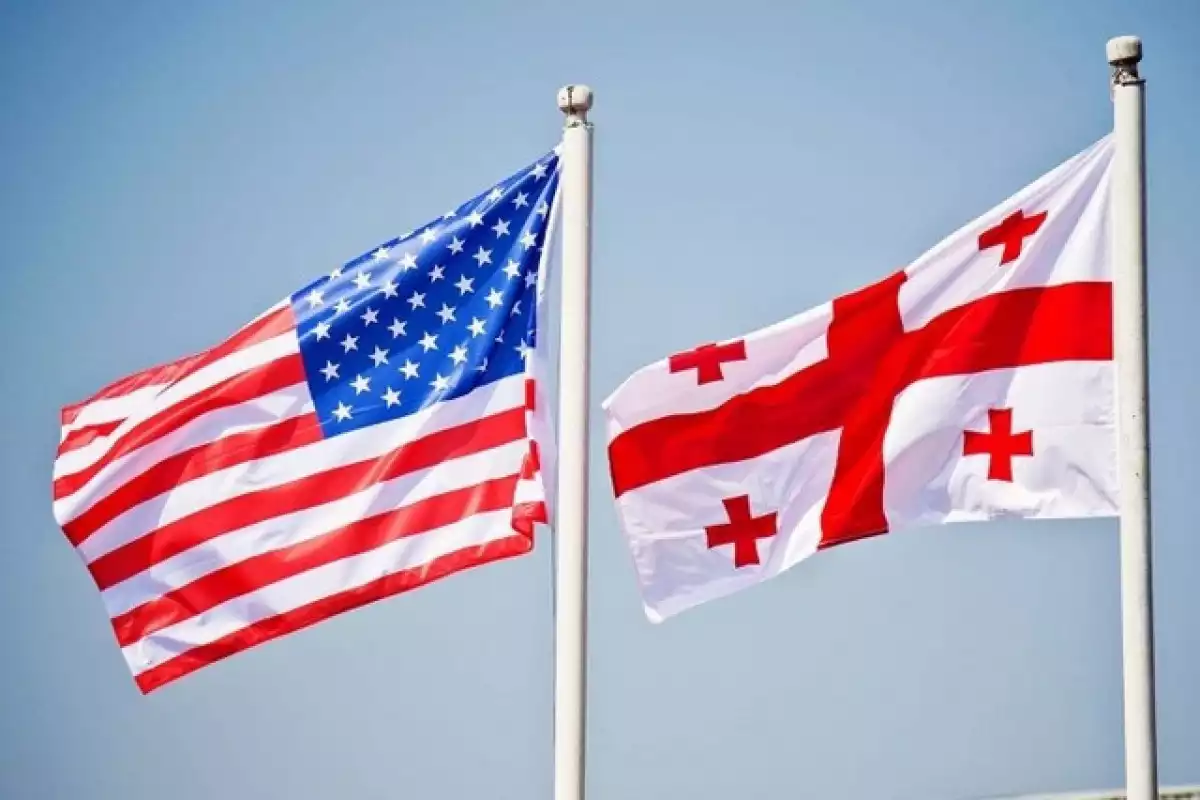
Photo credit: civil.ge
By Asif Aydinly
Amid growing tensions between Georgia and its Western partners, particularly the United States, Tbilisi is signaling a desire to recalibrate its foreign policy and regional role. Georgian Prime Minister Irakli Kobakhidze recently announced his government’s intention to restart the strategic partnership with Washington-not from scratch, but through a well-defined roadmap of mutual priorities. Meanwhile, Georgia is also actively engaging its neighbors, Azerbaijan and Armenia, in an effort to promote regional peace and secure its own geopolitical interests.
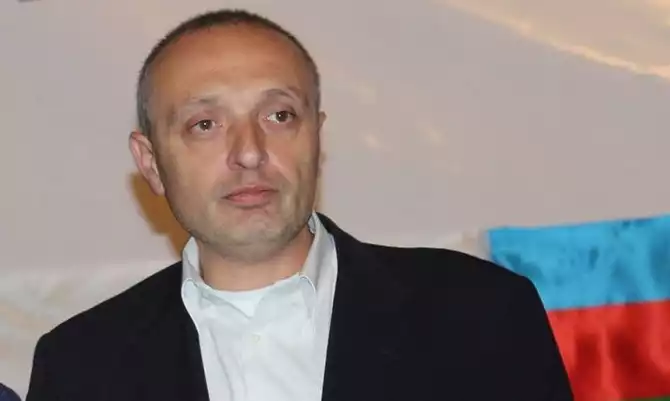
In an interview with The Caspian Post, Georgian political analyst and an advisor to former President Eduard Shevardnadze - Gia Kuchava shares his insights on the prospects of renewed U.S.-Georgian relations under the Trump administration, the implications of recent legislative developments in Washington, the future of former President Mikheil Saakashvili, and Georgia’s evolving ties with Azerbaijan, Türkiye, and Armenia.
- Recently, Prime Minister Irakli Kobakhidze announced that Georgia wishes to relaunch its strategic partnership with the United States, not from scratch but based on a clear roadmap outlining specific tasks and priorities for both sides. How realistic is this goal, and does the current U.S. administration have a firm intention to deepen ties with Tbilisi?
- Prime Minister Irakli Kobakhidze first spoke about the need to reset relations with the United States on November 30 of last year, when the outgoing Biden administration suspended the strategic partnership signed between Georgia and the U.S. in 2009.
Following Donald Trump’s inauguration, Prime Minister Kobakhidze stated that much in U.S.-Georgian relations would depend on whether President Trump could overcome the Deep State. According to Kobakhidze, the ruling Georgian Dream party is willing to renew strategic relations with the United States “from a clean slate.”
However, he also acknowledged that President Trump’s administration is currently overwhelmed with other matters, leaving little room to focus on Georgia. Nevertheless, in early March, the parliamentary majority leader, Mamuka Mdinaradze, took to Facebook to reflect on the challenges facing President Trump, suggesting that the Deep State was shifting its operations to Europe-raising doubts about Trump’s ability to defeat it.
These developments do not inspire confidence that the Trump administration is prepared to deepen ties with the Georgian Dream government. First and foremost, the Georgian authorities must ask themselves what they can offer President Trump in return, how attractive their proposal would be to the U.S. president, and what the Trump administration might demand in exchange. Today’s “radical opposition” in Georgia appears willing to concede everything to come to power.
According to recent reports in Georgian media, the honorary chairman of Georgian Dream, Bidzina Ivanishvili, attempted-through President Trump’s relatives, particularly Jared Kushner, husband of Ivanka Trump-to find out what President Trump wants and what steps could be taken to improve bilateral relations. However, the response reportedly came not from Trump, but from Secretary of State Marco Rubio, who allegedly said that there should be no backroom dealings and that he would now be the key point of contact for Georgia. I cannot confirm or deny this information. But it is worth noting that Secretary of State Rubio and Senate Foreign Relations Committee Chair Jeanne Shaheen are among the most outspoken anti-Russian politicians in the U.S.
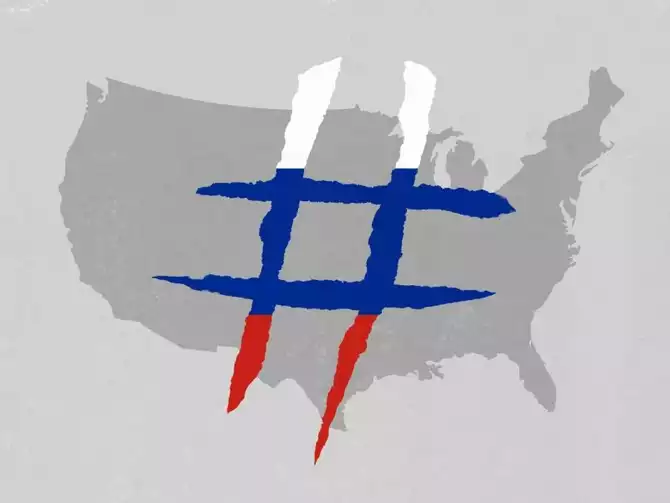
Source: The Guardian
In early March, Senate hearings on the MEGOBARI Act-legislation supporting the Georgian people’s aspiration to integrate into Euro-Atlantic structures and imposing sanctions on Georgian Dream officials and their allies undermining this path-were postponed. According to some Washington-based journalists, the delay was due to Donald Trump’s foreign policy direction. However, the Senate Foreign Relations Committee has now approved the bipartisan MEGOBARI Act, which states that “the current government of Georgia has grown increasingly hostile toward the country’s independent civil society and its core Euro-Atlantic partners while deepening ties with Russia, China, and other anti-Western authoritarian regimes.”
The adoption of the MEGOBARI Act should serve as a serious wake-up call for Georgian Dream. They must soften their anti-Western rhetoric. Georgian Dream’s leaders fail to understand that the contradictions between the U.S. and EU-both of which, as noted by Arnold Toynbee and Samuel Huntington, belong to the Western civilization-cannot be exploited to Georgia’s advantage. Moreover, while trade wars have occurred between the U.S. and European countries in the past, they have always managed to overcome their disagreements. Most importantly, the EU and the U.S. represent the world’s largest economies, and their partnership in trade and investment is unparalleled globally. Georgia’s current ruling party must take all of this into account.
- On March 17, a court once again found former President Mikheil Saakashvili guilty of illegally crossing the border and sentenced him to four years and six months in prison. What’s behind this move by the Georgian authorities?
- From a strictly legal standpoint, former Georgian President Mikheil Saakashvili-now a foreign citizen-entered the country illegally. If the court had acquitted him, it would have set a precedent, forcing the release of others arrested for similar offenses.
I believe Saakashvili no longer has the capacity to mobilize a large number of people to seize power, as he did in 2003. His time in power is still fresh in the public memory-marked by the takeover of businesses, the murder of political opponents, and human rights abuses.
Claims by the radical opposition that Saakashvili is “Putin’s prisoner” or a “political detainee” are merely attempts at dramatization and politicization, which do not withstand scrutiny for many Georgians.
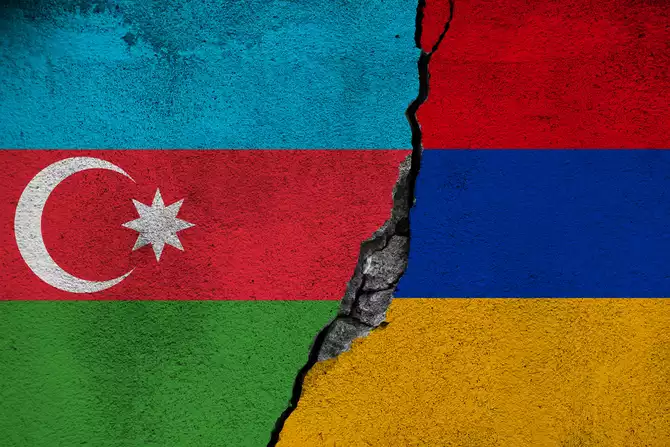
Source: TASS
- Judging by Prime Minister Kobakhidze’s visits, it seems that deepening ties with Azerbaijan and Armenia is a priority for Tbilisi. Georgia is also positioning itself as a neutral partner in the Armenia-Azerbaijan conflict, seeking to promote peace in the Caucasus. How important is Armenia for Georgia?
- I believe that Kobakhidze’s visits to Baku and Yerevan reflect an attempt to establish certain regional rules-primarily relating to borders.
In the Samtskhe-Javakheti region of Georgia, there is a compact Armenian population, and some separatist tendencies can be observed. Although post-independence Armenian leaders have insisted they have no territorial claims against Georgia, certain activists in the region have disagreed. Therefore, it is premature to speak of strategic relations between our countries.
There have been attempts by Russia and Armenia to propose a North-South trade route through Georgia-Armenia-Iran to India, but this would require reopening the railway through Russian-occupied Abkhazia-something the Georgian authorities are unlikely to consider, especially after Russia’s full-scale aggression against Ukraine. Since the war began, this issue has not been revisited.
- How would you assess Georgia’s foreign relations with Azerbaijan and Türkiye?
- The foundations of Georgia’s foreign relations with Azerbaijan and Türkiye were laid in the early 1990s by Presidents Eduard Shevardnadze and Heydar Aliyev, along with Turkish Prime Ministers Süleyman Demirel and later Tansu Çiller. Since then, relations have only deepened.
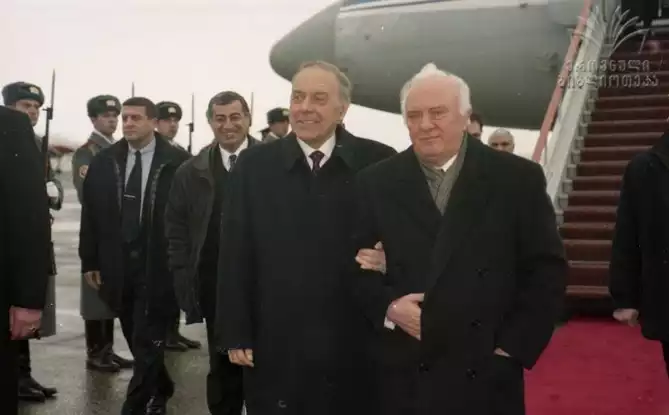
Source: AZTV
Today, according to the National Statistics Office, trade turnover between Georgia and Türkiye amounts to $2.3 billion. Türkiye remains Georgia’s top trading partner by a wide margin. In 2024, trade between Georgia and Azerbaijan totaled $853.711 million, and these figures continue to grow.
- Do Georgia’s relations with Azerbaijan and Türkiye affect its ties with Armenia?
- Definitely not. While there may be minor grievances at the grassroots level among Armenians, there has never been even a hint of concern from official Yerevan on this matter.
Share on social media